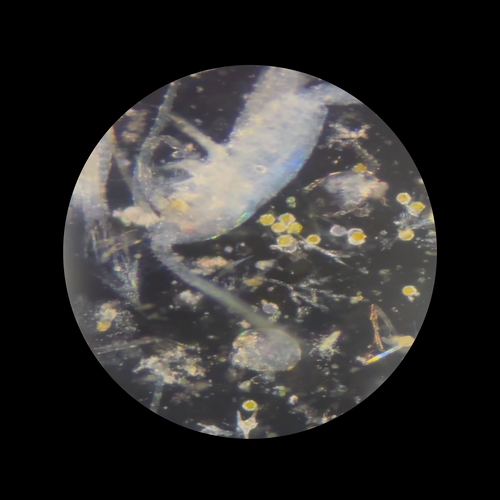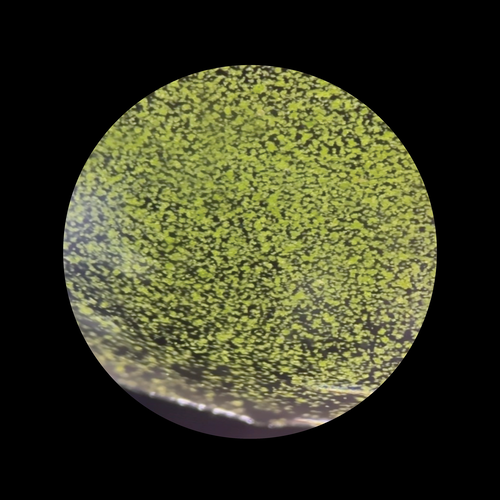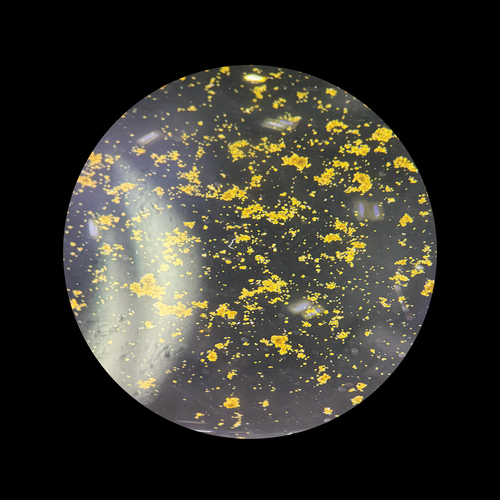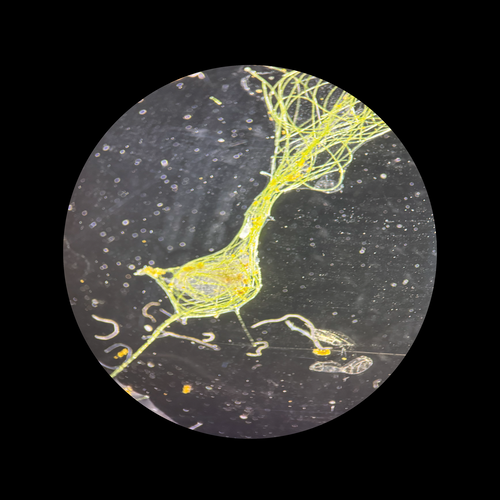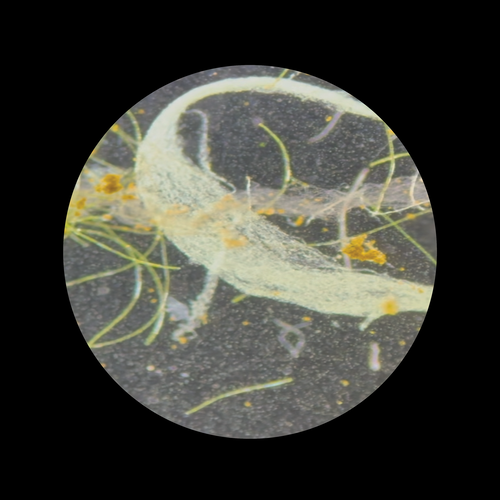PROJECT WEEK: ENGAGING WITH PLANKTON 08.-12.09.2025
Collaboration with Eawag Aquatic Research
“Roger the Plankton: Power Dynamics”
Part of “Bred in Captivity” Series
By Leila Saad
During a collaborative project week with Eawag in Zurich, I explored the microscopic world of plankton through the lens of power and control. What began as a simple observation exercise soon evolved into a critical reflection on hierarchies, authority, and human behavior. Looking through the microscope, I was struck by an unexpected sense of dominance, a feeling of being in charge of an entire living system confined to a droplet of water. This sensation led me to deliberately assume the role of a “benevolent dictator,” experimenting by adding other cultures to the plankton’s environment in an attempt to “improve” their world.
As I interfered, the reactions of the plankton changed; movement patterns shifted, some organisms struggled, and others ceased to move entirely. The more they reacted, the more I recognized the intoxicating nature of control and the self-justification often tied to power. The experiment became a mirror, revealing how easily good intentions can transform into manipulation and how authority shapes perception.
Through this process, I began to understand power not as an abstract social construct but as an embodied, sensory experience that can emerge even in the smallest, most unlikely contexts. “Roger the Plankton” became both a biological and psychological inquiry into control, responsibility, and the moral dimensions of influence.
In loving memory of Roger the plankton.
Looking down at the plankton running around their little blob of water under the
microscope, I couldn’t help but think of dictatorships, hierarchies, and power dynamics.
My view on dictators has always been simple: “he’s just an idiot.” I never thought much
further of it and just carried on with my life. Maybe it’s because I was never in a position
of power myself. Until now.
Looking through the microscope for the first time, I felt a strange sense of power. So I
decided to approach this project as if I were a power-obsessed person with a very
subjective point of view. Honestly, I didn’t know much about plankton. I’d heard of
them, but had no idea what they actually were or how they functioned. Honestly, I still
don’t. I only know a little now, mostly that they’re part of the aquatic food chain and
apparently quite important.
But when I looked at them, I didn’t see importance. I saw power. And from that angle, it
was fascinating. At first, just watching them was boring. They all moved the same way,
some quicker than others, but nothing really exciting was happening. So I decided to
interfere and show them how to be happy. I added some color from the bottles on the
table (or I believe scientists would call them cultures). I added some green, yellow,
brown plus some stringy algae-like substance, just to mix things up. To make their world
less grey and dull. To make it more exciting.
The more I added, the more they struggled and the more they struggled, the happier I
felt. Suddenly they weren’t just sitting in their boring neighborhood with their likeminded
friends. They were reacting, moving differently, doing something new. In my
head I started sounding like a dictator: “Look, little plankton, I’m giving you something
better. I’m giving you a nice space. Now move, enjoy it, make use of it.”
But as time passed by, I noticed some of them started to die. And strangely, that made
things even more interesting. The dynamics changed. Some were fast, some got stuck,
some struggled to move, some looked like they were hyper ventilating.
Every time I shook the glass, I felt that rush of controlling power again. And in that
moment, I started to understand, in my own micro way, how power dynamics,
hierarchies, and dictatorships might actually feel like when you are in charge. That
sense of convincing yourself you own someone’s life, that you have the right to decide
what is good for them and what isn’t. At the same time, I was causing pain and
discomfort to tiny beings I didn’t understand. I didn’t know how they functioned or what they felt.
This little experiment turned out to be multilayered. It started with me being bored, and
ended with me feeling something I’d never felt before. Maybe now I can’t just brush off
powerful roles in society by saying, “he’s just an idiot.” Because power has a weight, a
physicality, an emotional charge and unless you’ve felt even a glimpse of it, you don’t
really see the power it reproduces.
"Roger the Plankton: Power Dynamics"
Leila Saad
